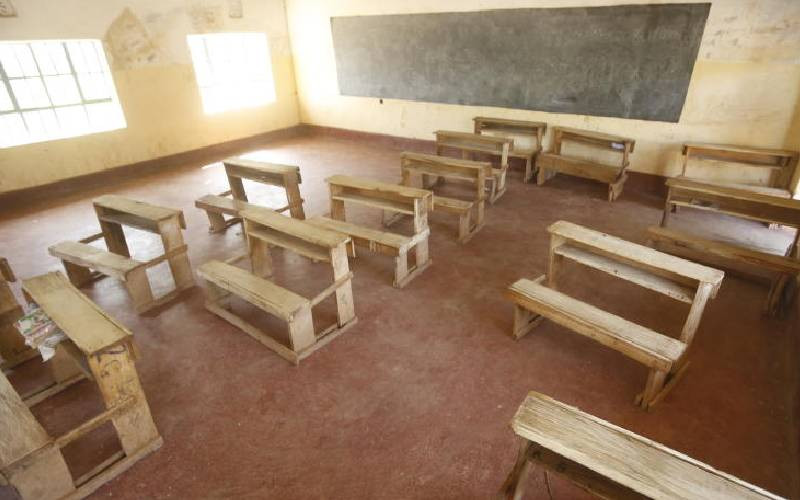×
The Standard e-Paper
Stay Informed, Even Offline

An empty classroom at Sinoni primary school in Mochongoi, Baringo south constituency on March 6, 2022. [Kipsang Joseph, Standard]
Transformation of education begins with teachers. Thus, educators have to be supported with practical resources, be assisted to master the curriculum and be aided to have the much-needed knowledge to run a successful classroom.